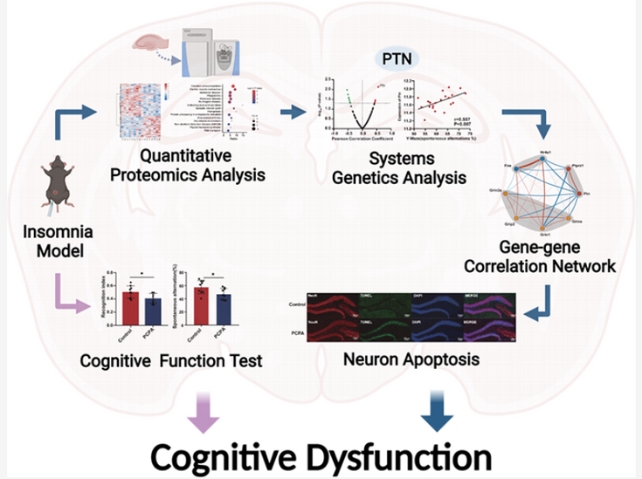If you've ever had a rough night's sleep and felt like your brain was running on empty the next day, you might not be surprised to hear it's more than a fleeting feeling.
Research is showing that a lack of sleep isn't just a mood-dampener; it harms the brain and could raise your risk for neurological diseases like Alzheimer's.
Scientists investigating this phenomenon have made a significant discovery by isolating a protein that takes a hit when mice don't get enough sleep.
The study authors used a mouse model of induced insomnia to confirm and extend previous findings about the negative effects of sleep deprivation on the brain.
A lack of sleep ultimately resulted in a decrease in the pleiotrophin (PTN) protein, which in turn leads to neuronal cell death in the hippocampus, an important brain region for learning and memory.
"We found that PTN is associated with sleep-loss-induced cognitive impairment," the team from Binzhou Medical University in China writes in their published paper.
"Our work suggests that PTN mediated signaling is a novel mechanism by which sleep protects cognitive function."
Scientists have begun looking into variations in protein and RNA levels to learn more about the underlying changes that are producing the effect of sleep deprivation on the hippocampus, as shown in studies involving humans.
To assess the impact of insomnia on the cognitive abilities of mice, the researchers tested the animals' spatial skills when navigating a maze and their short-term memory when recognizing a novel object.
Since the tests themselves could potentially influence the hippocampal proteins, the researchers carefully timed their assessments, conducting analysis 24 hours after the maze test.
Protein analysis showed 164 proteins were expressed differently in the brains of the insomnia model mice compared to control mice.
Many of those proteins are associated with pathways in the hippocampus that have been related to neurodegenerative diseases including Alzheimer's, Parkinson's, and Huntington's.

When the scientists compared the cognitive data of the control mice, they found a correlation between those mice that performed poorly on the cognitive tests and a decline in levels of one of the proteins, PTN.
In addition, when sleep function was restored in the insomniac mice, their hippocampal expression of PTN increased.
A thorough analysis of genetic variations showed that reduced PTN expression in the hippocampus affects a cell death pathway. Also, the team says that some of the population is more at risk of cognitive problems when they don't get enough sleep because of a variation in their genes.
These results highlight PTN as a biomarker for cognitive difficulties related to sleep deprivation and add to the mounting body of evidence supporting sleep's protective role in the brain.
Notably, genetically engineered mice without PTN exhibited abnormal cognitive behavior in previous studies, and human studies implicate PTN in Alzheimer's disease.
So it could be time to rethink that late-night Netflix binge for your brain's sake , and if you're having trouble sleeping well, it might be worth a chat to your healthcare provider.
"Our study provides a novel biomarker for insomnia-induced cognitive impairment," the authors conclude, "and a new strategy for seeking neurological biomarkers by the integration of proteomics and systems genetics."
The study has been published in the Journal of Proteome Research.
